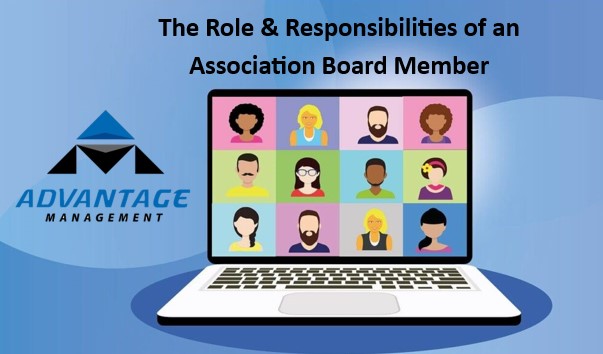Being a board member in an association is a position of significant responsibility and influence. It involves overseeing the management and maintenance of the property, ensuring the well-being and satisfaction of the residents, and adhering to legal and financial obligations. This role is integral to the smooth operation of the community, requiring a blend of leadership, dedication, and transparency.
While being a board member is a volunteer position, it comes with responsibility and accountability. All owners should consider what it means to be a board member and the filing requirements. If you are considering running for your board, you must ensure you are prepared to take on real responsibility. As a board member, you must provide your association and board compliance with the Illinois Condominium Act and the Corporate Transparency Act.
Governance and Policy Setting:
Bylaws and Rules: Board members are responsible for establishing and enforcing the bylaws and rules that govern the condo community. These rules cover a wide range of issues, from noise regulations to the use of common areas.
Policy Development: Creating policies that address the needs and concerns of residents, ensuring that they are fair, enforceable, and in compliance with local, state, and federal laws.
Financial Management:
Budgeting: Developing and approving the annual budget, which includes maintenance costs, reserve funds, and unexpected expenses.
Assessments: The association budget will determine the funds needed to run your association successfully. Then, each owner is responsible for their percentage of ownership.
Financial Oversight: Ensuring that financial records are accurate and transparent, conducting regular audits, and maintaining the association’s financial health.
Maintenance and Repairs:
Common Areas: Overseeing the maintenance and repair of common areas such as lobbies, pools, and landscaping to ensure they are safe and attractive.
Building Upkeep: Ensuring that the physical aspects of the building, including common plumbing, electrical systems, and roofing, are adequately maintained and promptly repaired when necessary.
Conflict Resolution:
Dispute Management: Addressing disputes between residents and between residents and the board fairly and impartially.
Communication: Keeping open lines of communication with residents to address their concerns and feedback effectively.
Legal and Ethical Compliance:
Regulatory Adherence: Ensuring the association complies with all relevant laws and regulations, including those related to fair housing and non-discrimination.
Ethical Standard: Maintaining high ethical standards and avoiding conflicts of interest in board activities and decisions.
The Corporate Transparency Act (CTA):
The federal government has new filing requirements; each board member must provide information to ensure compliance with your association.
Items include:
- Full legal name
- Date of birth
- Home address
- Identifying number from a driver’s license, passport, or other approved document
- Image of the approved document that contains the identifying number
When your next association election approaches, we will be adding a check box to the candidate form stating that if elected to the board, you are willing to provide the information. We understand that some board members might be uncomfortable providing this information, and we can work with the boards and individual members on resigning from the board or not running in the next election. Failure to comply with the CTA’s reporting requirements can result in significant penalties, including fines and imprisonment.
Being a board member of an association is a multifaceted role that requires a deep commitment to the community, an understanding of governance and financial management, and a dedication to ethical practices. By embracing the principles of transparency and accountability, as exemplified by the Corporate Transparency Act, board members can enhance their effectiveness and ensure the long-term success and harmony of the association. Please contact your property manager for additional information on any issue this article covers.


Recent Comments